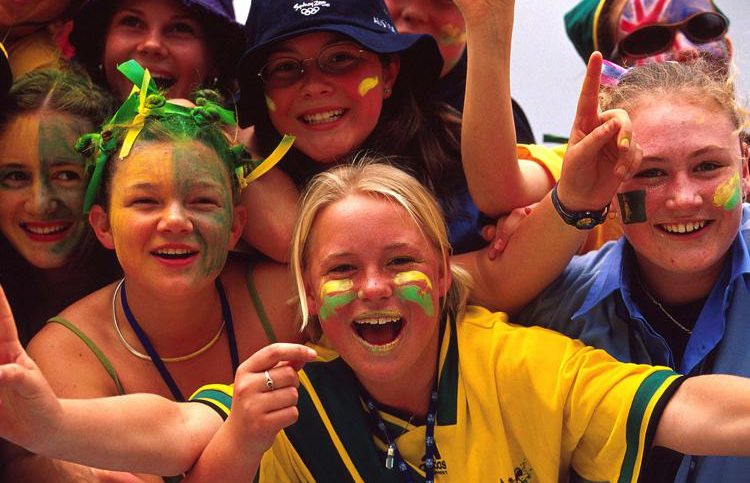Flashes of white and blue on a 21 inch TV screen. A mention of ‘Maradona.’ A stadium erupting into cheers. My dad’s face breaking into a rare smile as an Arab commentator yells, ‘GOOOOOOOOOOAAAAAAAAAAAAAAAAAAAAAAAAAALLLLLLLLLLLLLLLLLLLLL!!!’ (It amazes me how long they can hold their breath.)
These were my first glimpses into the world of football as a toddler. I didn’t understand much of what was going on then and I certainly didn’t get what the deal was (with watching any sport for that matter) while growing up, preferring to barricade myself in my room to avoid the incessant blaring of the television whenever a match was on.
The craze amongst fans has always been amusing to observe however, whether it’s the explosive atmosphere in the stadium behind our apartment when one of the local teams was playing, or young men stopping traffic on Gulf Road to do a few celebratory jigs in the midst of honking cars, their faces beaming with exultation at Kuwait having won a game.
June 2006, I was home alone at my aunt’s in Bombay and started watching a football game out of sheer boredom. I was transported to a state of excitement within minutes, infected with the thrill that emanated from that TV screen, and suddenly the most important thing then was who’d score a goal.
From that moment on, I was hooked. Family bonds strengthened as the next few weeks until the World Cup finals were spent either watching matches with various relatives, devouring every daily that covered the event, or in heated discussions with cousins and uncles about players’ capabilities and which team would lift the Cup.
After the finals, a deep gloom settled upon me like it did with millions of others. There was a void that couldn’t be filled as the question, ‘now what?’ resounded inside my head. And then, still on a World Cup high a couple of months later while observing Ramadan in Kuwait, the unbelievable happened. The Brazilian football team visited Kuwait to play a friendly and my dad took me to watch it. I was in a trance throughout the evening; watching some of the world’s best footballers play is not a regular occurrence.
The stadium was pulsating with an electrifying energy like nothing I’d ever witnessed, and I thought I would lose my hearing when Ronaldinho and Kaká came onto the field. The legendary Pelé appeared as a guest of honor. My dad, who despises being anywhere near a public spectacle, joined me in doing the Mexican wave (which the spectators did about every five minutes). I cheered myself hoarse as Robinho scored on an incredible bicycle kick. Quite predictably, Brazil won.
What is it about sports that makes us spend so much time and emotion upon it? Scientifically, our feelings while watching a game are dictated by the release of different hormones such as oxytocin, a hormone responsible for creating contagious feelings of positivity, connectedness and promoting social bonds. Dopamine, a neurotransmitter, transmits signals within the brain and is produced at the time of unanticipated but pleasant events, such as your team winning. A surge of dopamine at this time makes one want to relive the elation, explaining why fans don’t tire of watching their favorite sports.
The activity of watching sports injects a high level of excitement into our lives—more so with a group of people—and enables us to build social connections. We may watch football to feel the rush of adrenaline as a player on our favorite team successfully tackles another, the stress and anxiety brought about by a penalty shoot-out, the joy and exhilaration after our team wins when hope seems futile.
It may also be to marvel at the skill of the players, occasionally feel a sense of wonder as they defy the odds stacked against them, and love them for it. They may inspire us to work harder to shatter preconceived limits, strive to be better, and attain our goals. Humans have an innate need to look up to an ideal; we admire achievers that stand out in a sea of mediocrity. And then there’s the human element to it all, to show solidarity to our team even if it loses. After all, as Terry Pratchett said (and this can be applied to any sport), “the thing about football—the important thing about football—is that it is not just about football.”








